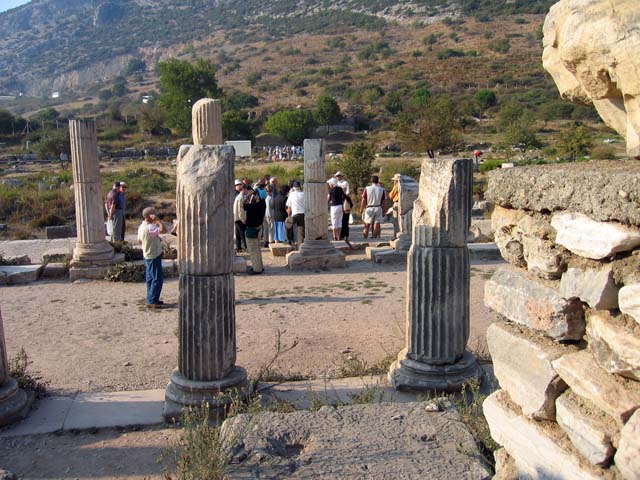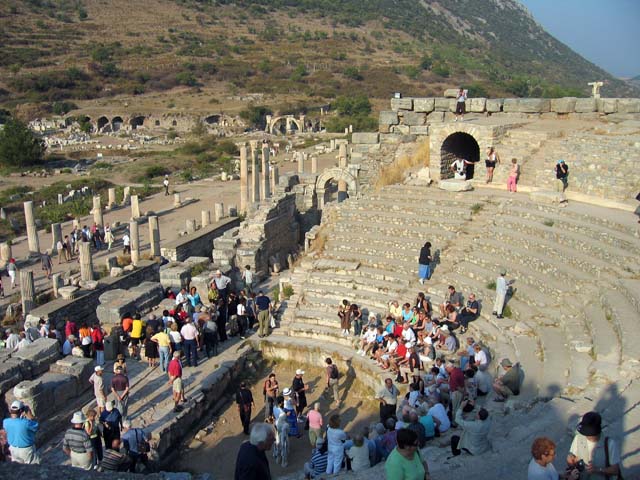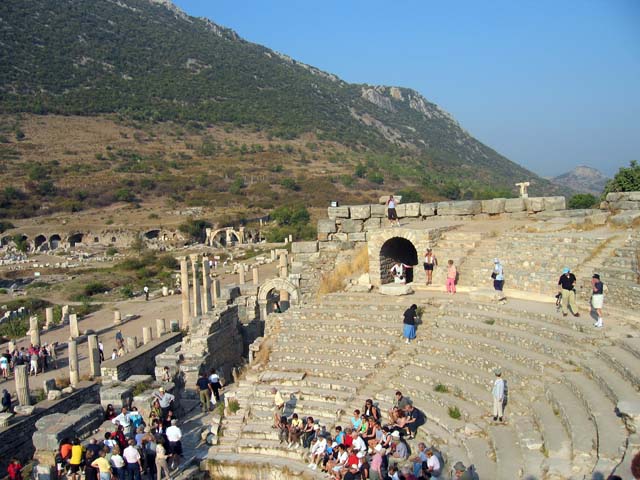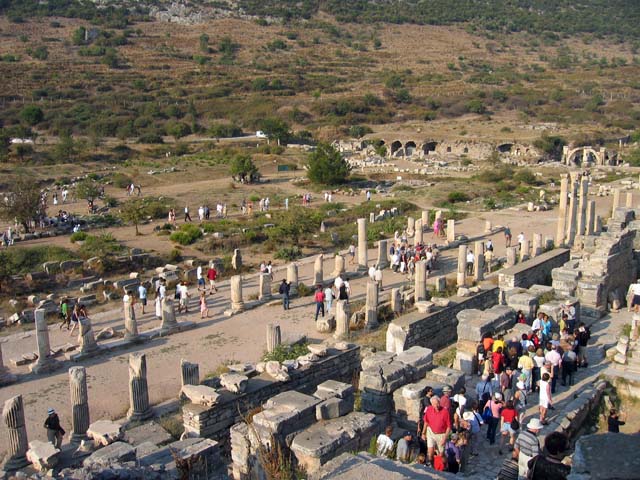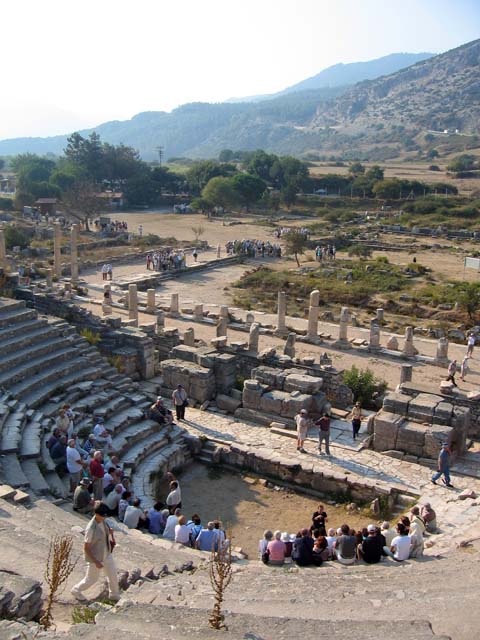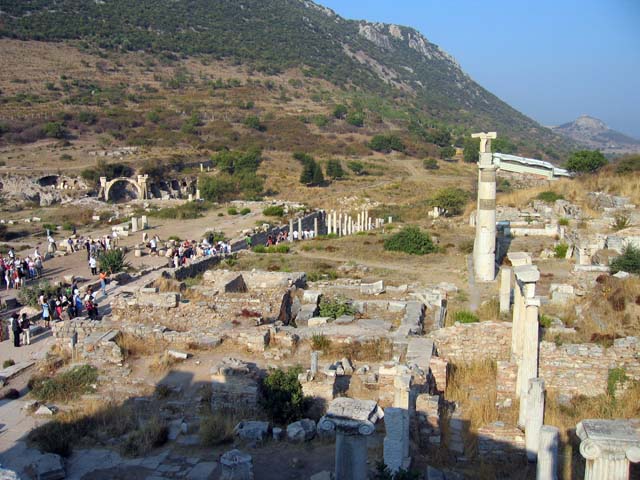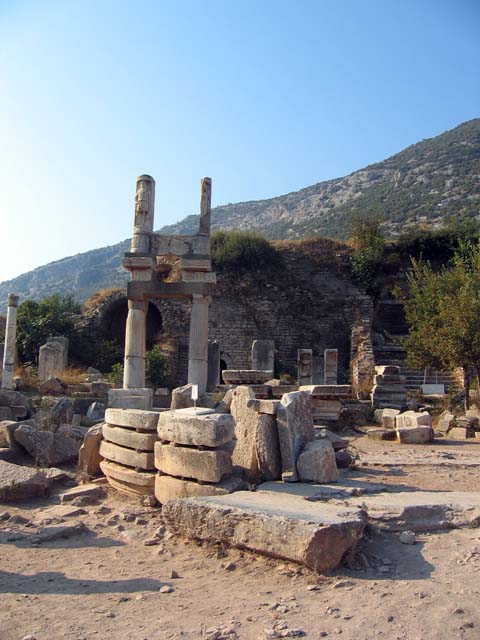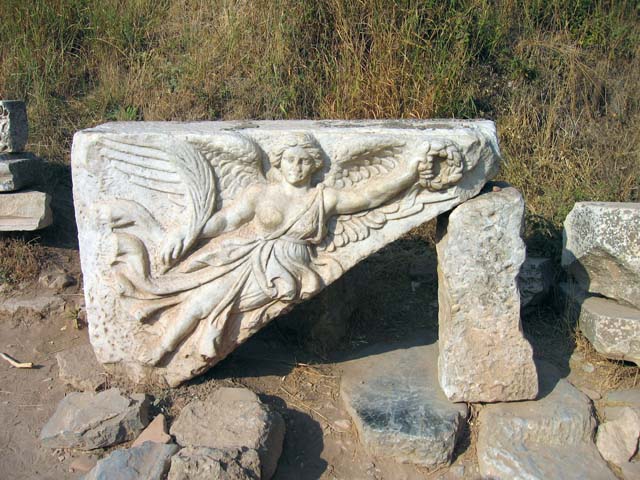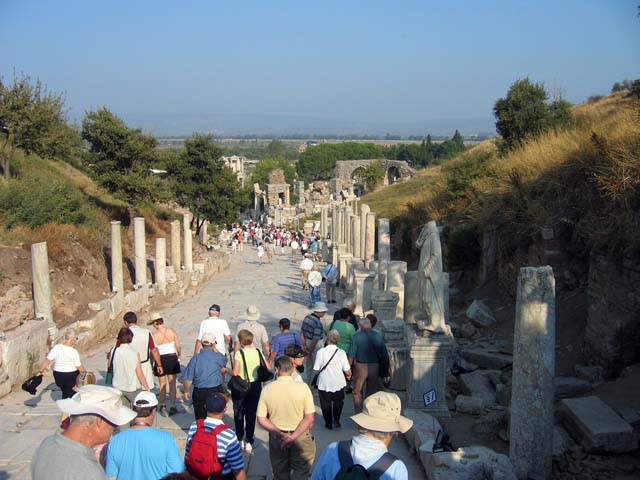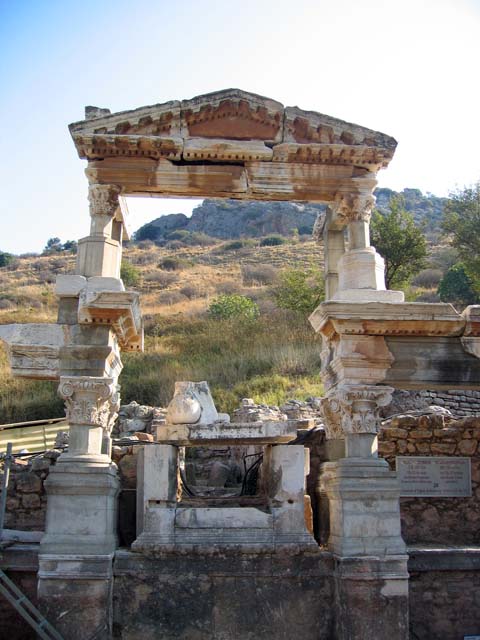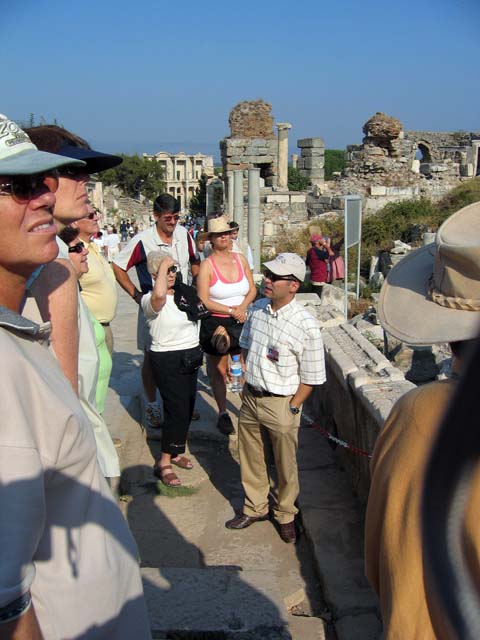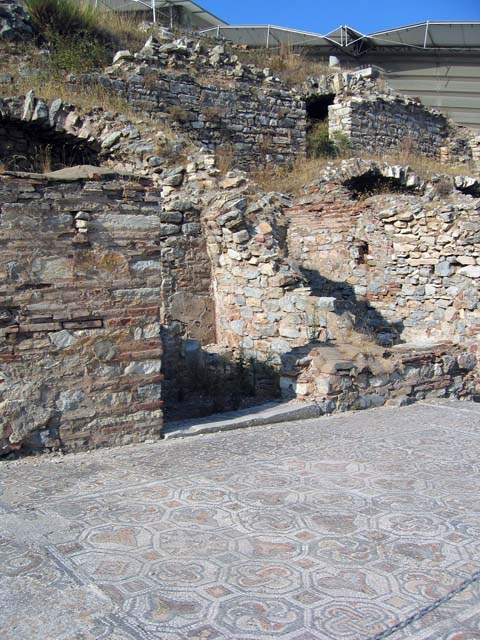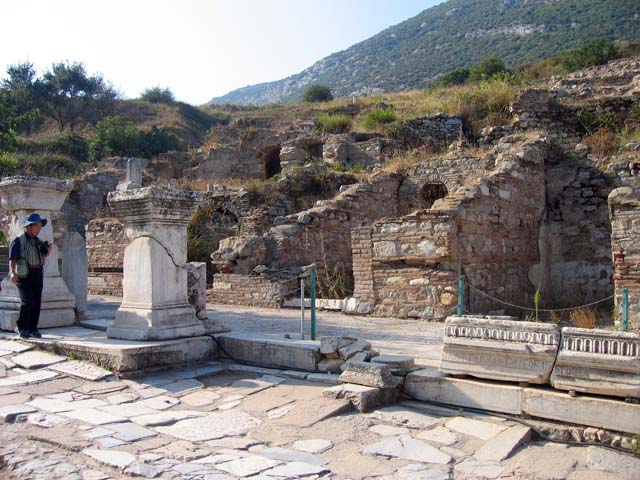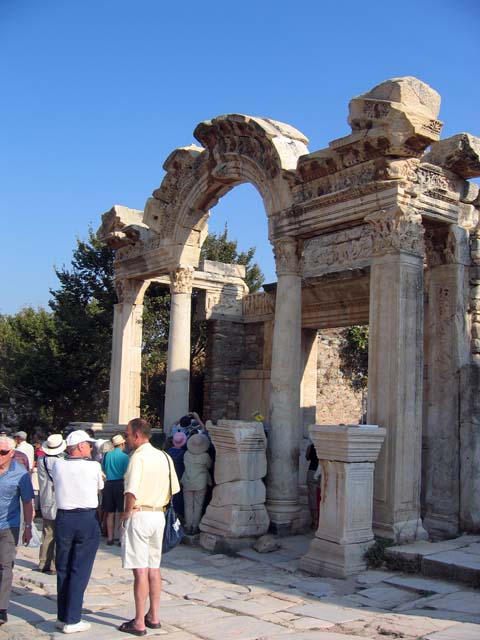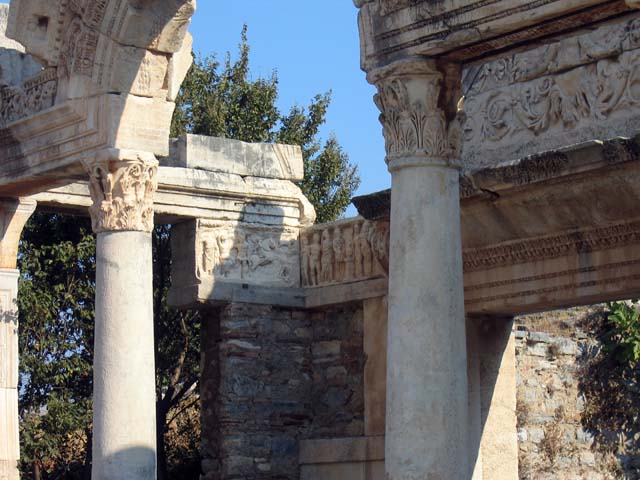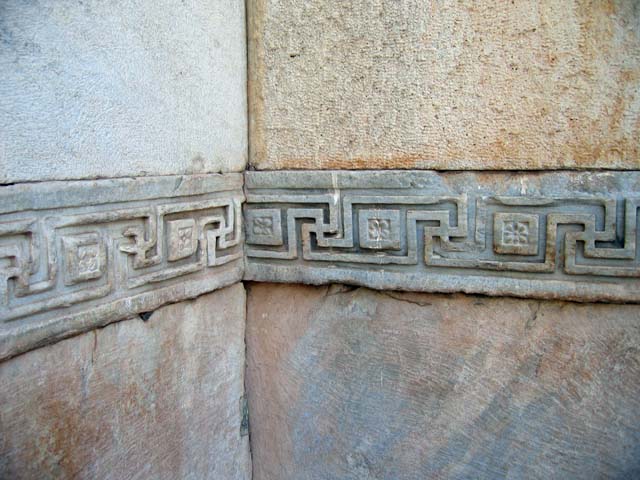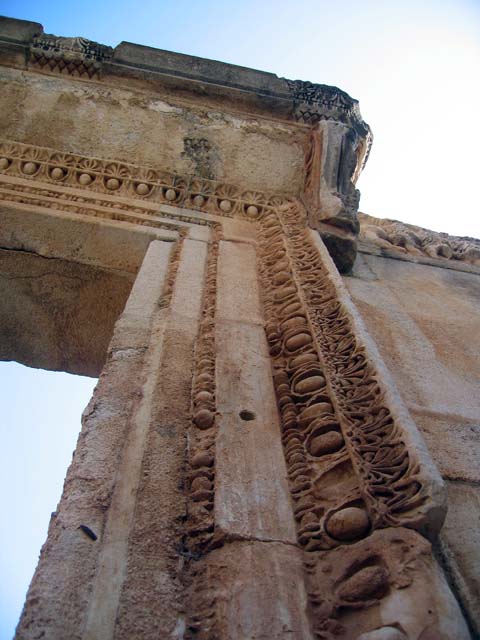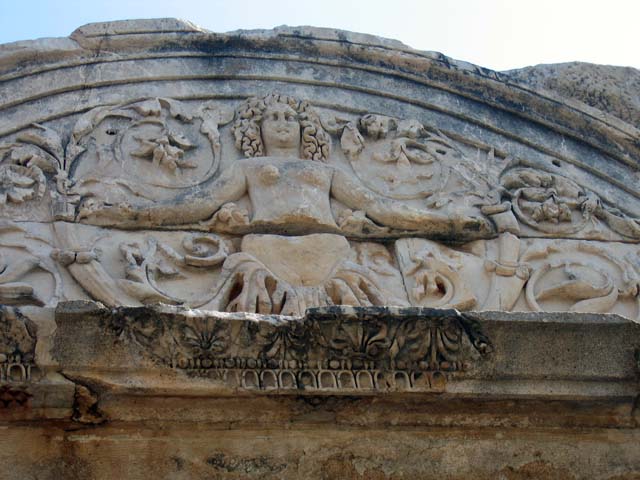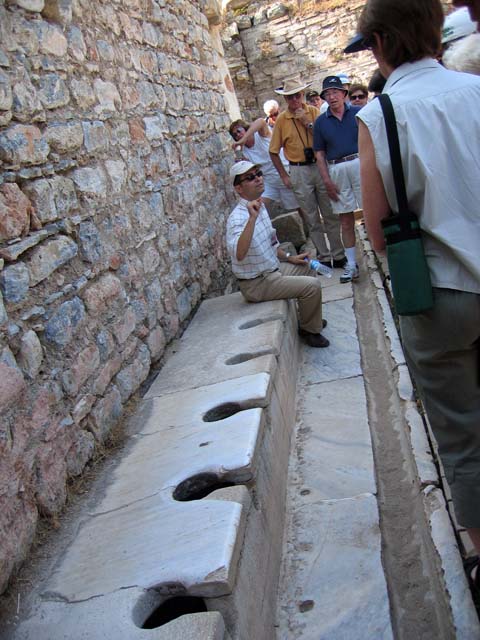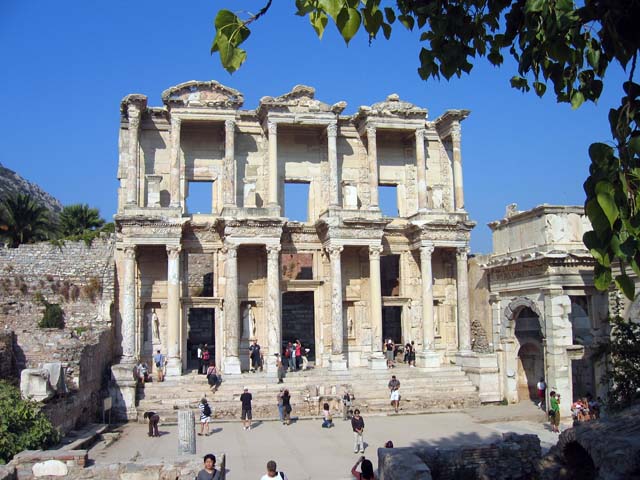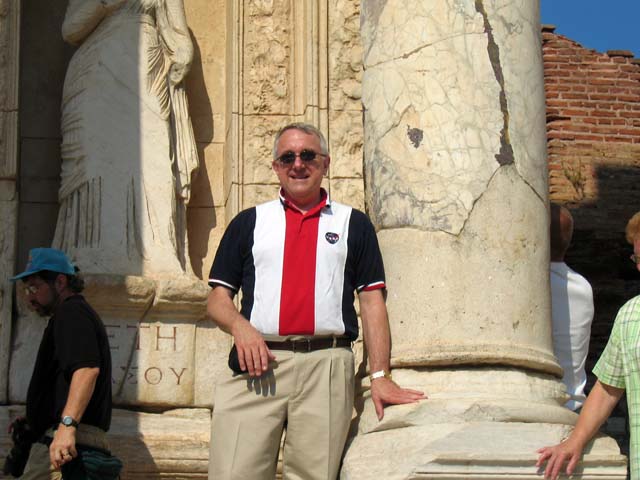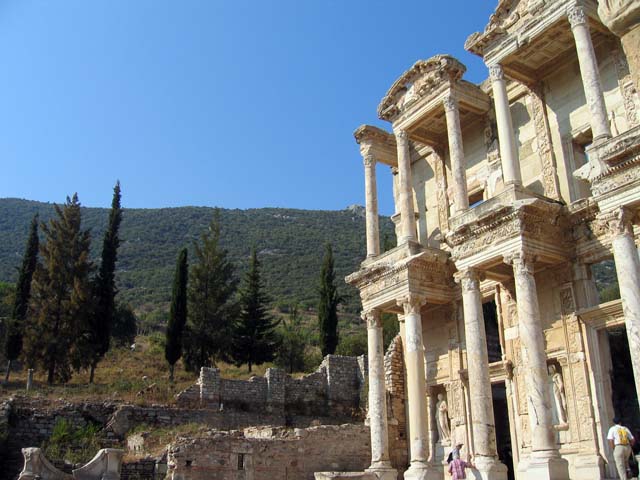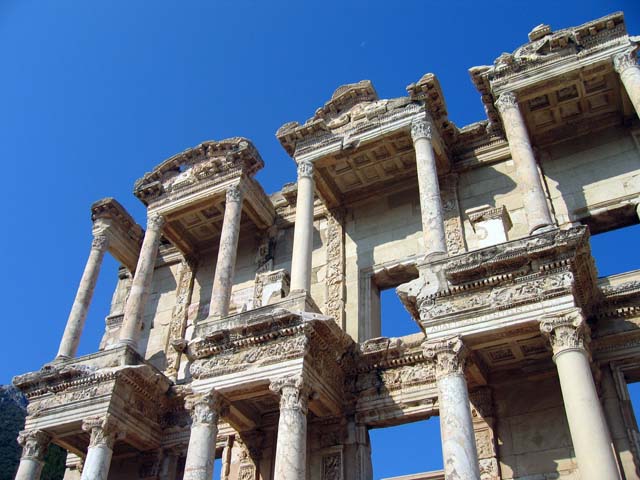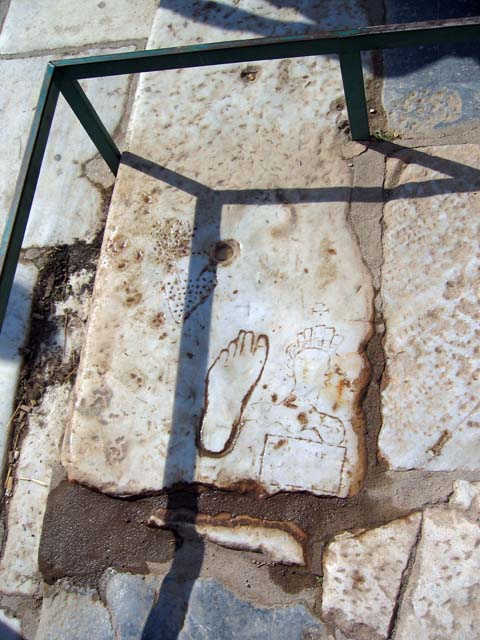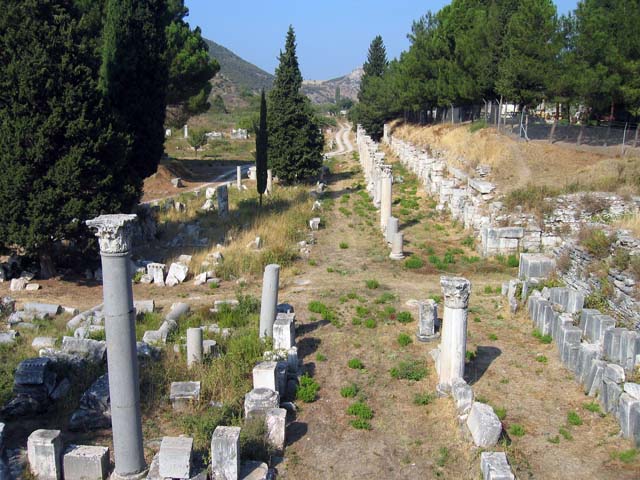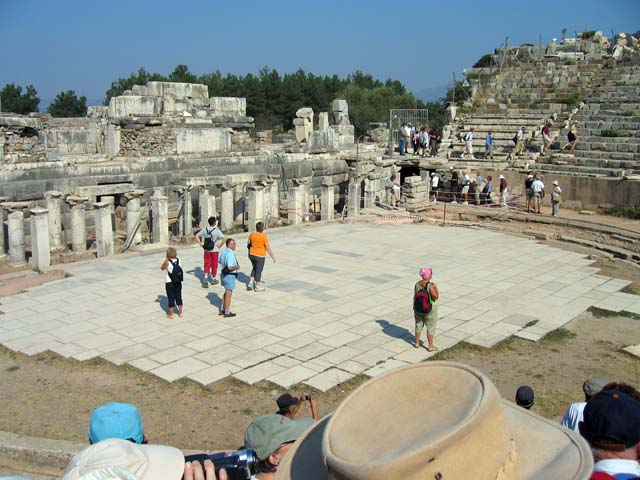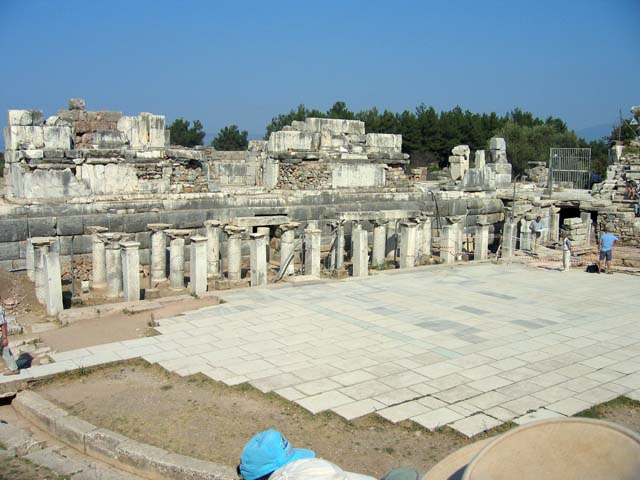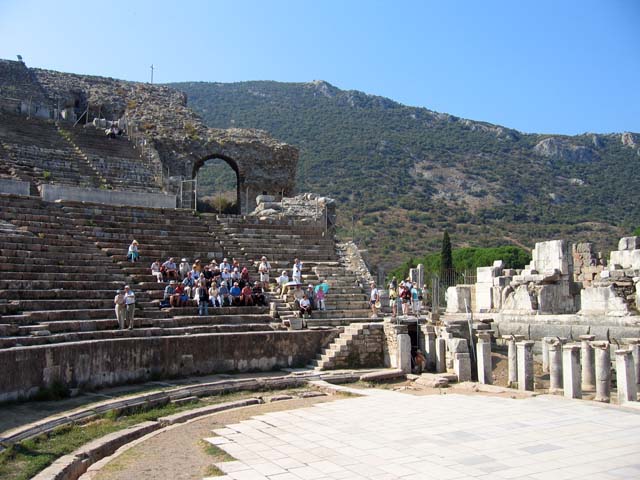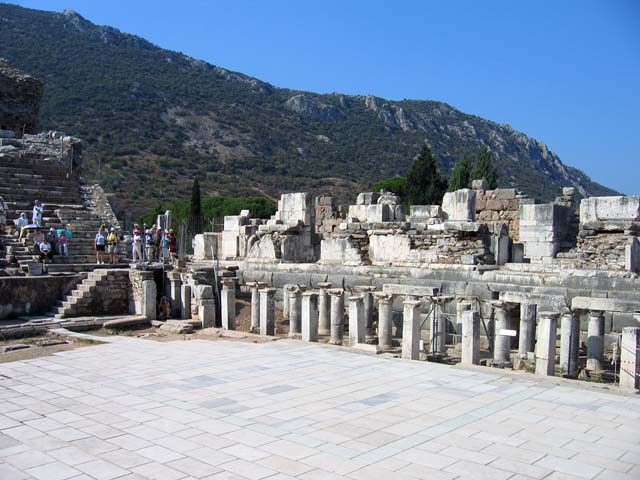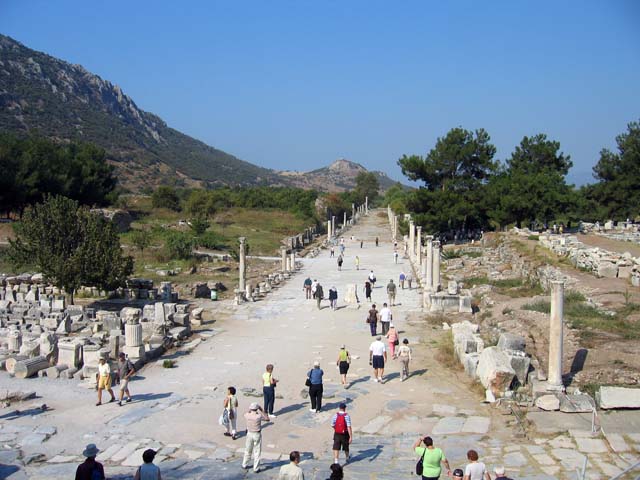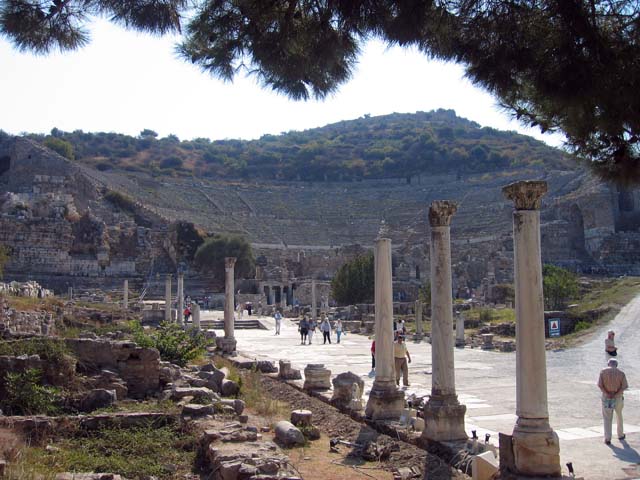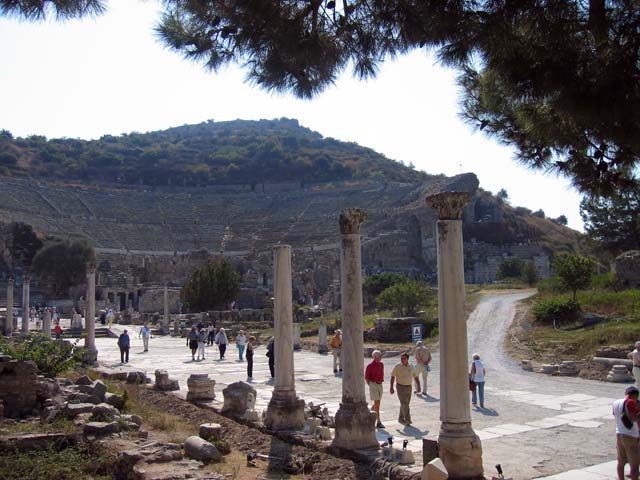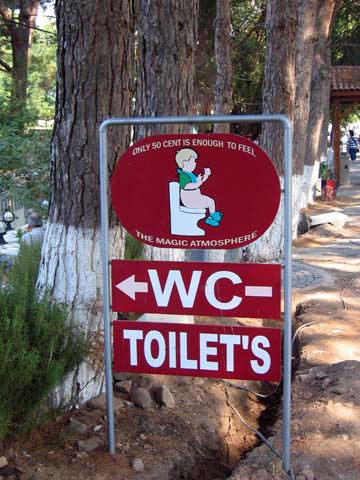|
I suppose Ephesus is the most impressive place we visited. Sure, flying through the sky in a hot air balloon in Cappadocia may have been more fun, but seriously, visiting the city to which the apostle Paul wrote his letter to the Ephesians had to be the highlight of the trip. This is it. This really is the place. It was a holy cow morning.
There were lots of broken marble columns.
This is the Odeon. It's a meeting hall that was built about 150 AD.
Nice, but small, compared to the Theater, which we'll see in a few minutes.
Lots of broken columns.
Impressive nonetheless.
This place was the capital of Asia Minor in the time of Rome.
Most of the great artworks have been carried away to museums in London and Berlin and other places, but the Turks have done a nice job with the pieces that are left.
They've stacked and sorted and re-created as best they can.
And here and there you can still find beautiful ancient works of art.
This would have been a most impressive boulevard.
And down there is the great library at Ephesus.
More pieces assembled by the modern Turks. Something tells me the original didn't look much like this hodgepodge.
Mete holds forth.
An ancient mosaic in a floor.
More mosaic.
The mosaic is over there behind the chains.
It made me yearn to see the incredible beauty of the place a couple of thousand years ago.
This is the Temple of Hadrian.
That design in the wall represents a nearby river. Can you guess
the name?
That framework design reminds me of another design I've seen. Isn't this a design from a picture frame in my parents' home? The ovals represent eggs, or fertility. Looks awfully familiar.
That frieze shows a wild boar hunt. I think.
I know who she is -- that's Medusa up there. See the snakes?
And I know what this place is, too. And oh, c'mon. You know what those holes are for.
Mete delicately demonstrates an ancient toilet.
The ancient library at Ephesus.
Pomegranates outside the library.
They took all the pieces that were lying around and put them back together and, voila! A library.
I'm up here on the library steps and Wendy is 'way down there. Hey Wendy, will you take my picture?
Well of course she will.
She'll even do a closeup.
The library overshadowed much of what we saw in Ephesus.
Marc Antony moved many of the contents of this magnificent library to the even greater Library of Alexandria as a wedding gift to Cleopatra. I'll bet that didn't make the librarians very happy.
And right out there in the road was something less magnificent. How to explain this? Well, it's sort of a map and it's sort of an advertisement and it's sort of naughty. See that picture of a woman carved in the stone of the street? Well, what she's saying is, if you walk in the direction the foot is pointed you'll come to my house and there you'll find what that heart-shaped symbol represents. OK, it's an ad for a house of ill-repute.
A former avenue.
Now this theater is of particular interest.
After this ancient theater was excavated, the modern Turks would occasionally use it for concerts. But some rock group had its amplifiers turned up so loud that the vibrations caused some rocks to fall. That ended the concerts.
But in Roman times that stage happened to be the site of something else entirely.
This is the theater at Ephesus. There's only one theater at Ephesus, so when the New Testament refers to a "theater" here, one would suppose this has to be it. Here's a pertinent passage from Acts 19:
23 ¶ And the same time there arose no small
stir about that way. So is this really the very same theater mentioned in the account? Apparently Paul was in Ephesus in AD 54 on his first missionary journey, and construction of this theater was begun during the reign of Claudius (AD 41-54). So something like a theater must have been right here when Paul was in town. But the theater wasn't completed until the reign of Emperor Trajan (AD 98-117). So I dunno. Also, even though Mete said Paul spoke here, Acts says he merely wanted to speak in the theater at Ephesus, but his friends talked him out of it. So did Paul actually preach in this theater as Mete claimed? I really dunno.
And that Temple of Diana, which was one of the Seven Wonders of the Ancient World, isn't even right here. It's nearby, though. We'll see it later in the day.
An avenue in Ephesus.
Just look at that great theater up there on the hill.
And look at the avenue leading up to it. This was quite an impressive place.
Bye bye, Ephesus.
Well, who wouldn't pay 50 cents to feel the magic atmosphere of a Turkish toilet?
|


